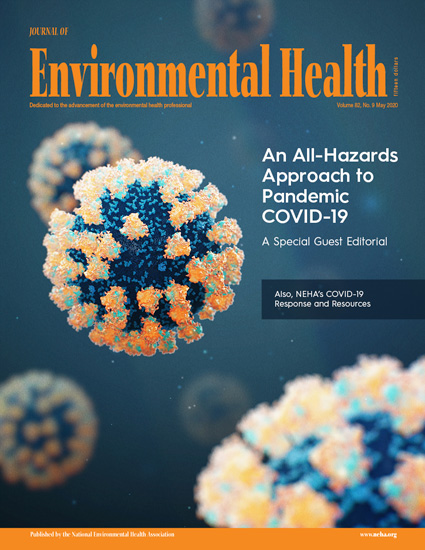饮酒对人类热应激生理和感知反应的影响:系统性范围审查
IF 5.3
2区 环境科学与生态学
Q1 ENVIRONMENTAL SCIENCES
引用次数: 0
摘要
众所周知,饮用乙醇会增加炎热天气和热浪期间的发病率和死亡率。然而,人们对酒精如何独立地改变热应激的生理、感知和行为反应仍然知之甚少。因此,我们进行了一项系统性的范围界定综述,以了解饮酒如何影响对热的体温调节反应。我们检索了五个数据库,并采用了以下资格标准:研究必须具备以下条件:1)涉及口服乙醇;2)采用随机或交叉对照研究设计,对照试验由体积匹配的非酒精饮料组成;3)在健康成人中进行;4)报告热生理学、知觉、水合状态标记和/或行为结果;5)以英文发表;6)在温度大于 28°C 的空气或水中进行;7)涉及被动休息或运动;8)在 2023 年 10 月 4 日之前发表。去除重复内容后,共筛选出 7256 篇论文标题,对 29 篇论文进行了资格评估,最终有 8 篇论文被纳入最终审查。在这 8 篇研究中,共有 93 名参与者(93 名男性/0 名女性),平均热暴露时间为 70 分钟,平均酒精剂量为 0.68 克-千克1。这些研究分析了 23 个独特的结果变量。受酒精影响最大的生理指标是核心体温(在 3/4 项研究中,饮酒会降低核心体温)。此外,在一项测量皮肤血流量的研究中,饮酒会增加皮肤血流量。在这些研究中,除了酒精剂量最高的一项研究外,并没有持续观察到典型的脱水指标,如尿量增加(1/3 项研究)、体重减轻(1/3 项研究)和血浆容量减少(0/2 项研究)。有关饮酒对体温调节反应的影响的研究还不充分,而且受到饮酒剂量适中、热暴露持续时间短以及仅在年轻健康男性中进行的研究的限制。与当前的防暑健康建议相反,现有文献表明,饮酒似乎不会损害年轻健康男性对热的生理反应。本文章由计算机程序翻译,如有差异,请以英文原文为准。
The effect of alcohol consumption on human physiological and perceptual responses to heat stress: a systematic scoping review
Ethyl alcohol (ethanol) consumption is ostensibly known to increase the risk of morbidity and mortality during hot weather and heatwaves. However, how alcohol independently alters physiological, perceptual, and behavioral responses to heat stress remains poorly understood. Therefore, we conducted a systematic scoping review to understand how alcohol consumption affects thermoregulatory responses to the heat. We searched five databases employing the following eligibility criteria, studies must have: 1) involved the oral consumption of ethanol, 2) employed a randomized or crossover-control study design with a control trial consisting of a volume-matched, non-alcoholic beverage, 3) been conducted in healthy adult humans, 4) reported thermophysiological, perceptual, hydration status markers, and/or behavioral outcomes, 5) been published in English, 6) been conducted in air or water at temperatures of > 28°C, 7) involved passive rest or exercise, and 8) been published before October 4th, 2023. After removing duplicates, 7256 titles were screened, 29 papers were assessed for eligibility and 8 papers were included in the final review. Across the 8 studies, there were a total of 93 participants (93 male/0 female), the average time of heat exposure was 70 min and average alcohol dose was 0.68 g·kg1. There were 23 unique outcome variables analyzed from the studies. The physiological marker most influenced by alcohol was core temperature (lowered with alcohol consumption in 3/4 studies). Additionally, skin blood flow was increased with alcohol consumption in the one study that measured it. Typical markers of dehydration, such as increased urine volume (1/3 studies), mass loss (1/3 studies) and decreased plasma volume (0/2 studies) were not consistently observed in these studies, except for in the study with the highest alcohol dose. The effect of alcohol consumption on thermoregulatory responses is understudied, and is limited by moderate doses of alcohol consumption, short durations of heat exposure, and only conducted in young-healthy males. Contrary to current heat-health advice, the available literature suggests that alcohol consumption does not seem to impair physiological responses to heat in young healthy males.
求助全文
通过发布文献求助,成功后即可免费获取论文全文。
去求助
来源期刊

Environmental Health
环境科学-公共卫生、环境卫生与职业卫生
CiteScore
10.10
自引率
1.70%
发文量
115
审稿时长
3.0 months
期刊介绍:
Environmental Health publishes manuscripts on all aspects of environmental and occupational medicine and related studies in toxicology and epidemiology.
Environmental Health is aimed at scientists and practitioners in all areas of environmental science where human health and well-being are involved, either directly or indirectly. Environmental Health is a public health journal serving the public health community and scientists working on matters of public health interest and importance pertaining to the environment.
 求助内容:
求助内容: 应助结果提醒方式:
应助结果提醒方式:


